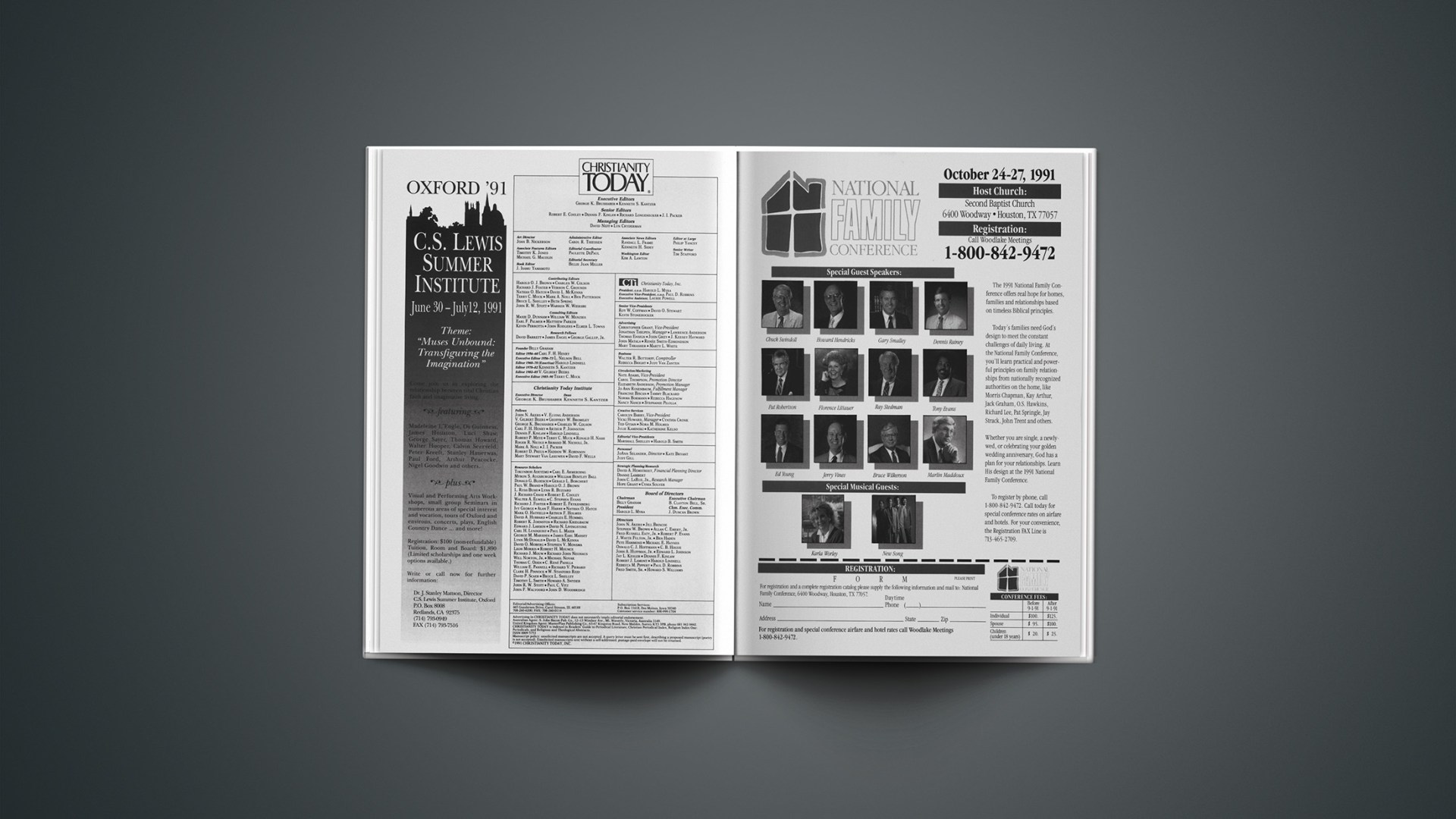If, in the 1960s, you had said someone had “a prophetic ministry,” you would have probably meant that person offered a radical social critique—and had an abrasive personality, long hair, and love beads. Say “prophetic ministry” today, and people will think you mean someone speaks a word from God.
Last year, associate features editor Michael Maudlin noticed that many of his friends were talking about modern prophets. Some quick research showed that much of the current interest in the prophetic gift centered on a particular congregation, the Kansas City (Mo.) Fellowship (now Metro Vineyard Fellowship). The essay beginning on page 18 records what Mickey found when he looked in on a major prophecy conference there.
One thing he found was lively dancing in the spirit. Another discovery was that the leaders of the conference seemed to be available for interviews only late at night. In fact, three key interviews took place between midnight and 1:30. Although the conference meetings officially concluded at about 9:30 P.M., an informal “ministry time” kept leaders busy into the wee hours. Daylight appointments were unavailable, because the prophetic leaders were busy one-on-one with pastors seeking guidance in prophetic ministry.
Mickey was afraid his midnight interviews were perhaps sabotaging the conference, keeping the speakers from their sleep. But, he says, the leaders welcomed him—perhaps as Jesus welcomed his famous night visitor, Nicodemus.










